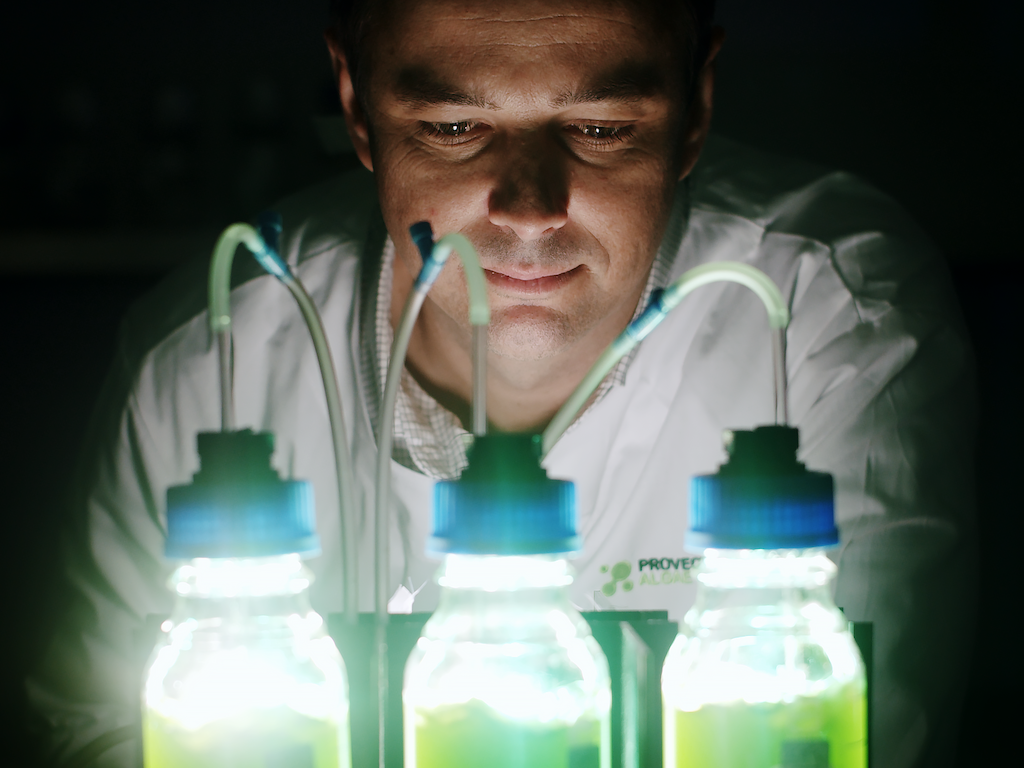Aussie Biotech Provectus Raises US$3.25M Seed For Its Algae Platform With Multi-Industry Applications
3 Mins Read
Australian startup Provectus Algae has secured US$3.25 million in a seed funding round led by Hong Kong-based early stage venture studio Vectr Ventures. Provectus Algae optimises algae growth and uses synthetic biology to create a platform of algae ingredients suitable for use in a range of industries, from sustainable proteins to bioplastics.
Provectus Algae’s US$3.25 million seed round also drew investment from Canadian venture capital Maropost Ventures, alongside other undisclosed participants. The news was first announced on AgFunderNews. Founded in 2018, the Noosaville-based biotech specialises in the “optimisation of algae” to develop a number of high-value compounds for use in a range of applications.
Speaking to AFN, the firm’s founder and CEO Nusque Spanton was inspired to start the company during his time working in the Indonesian pearl oyster industry, where he gained experience in algae production as an important sideline as the basis for growing oysters.
“After leaving those roles in Indonesia and coming back to Australia, I figured the algae was far more valuable than anything we were doing with pearl oysters,” Spanton explained.
Algae, which has attracted much more attention in recent years, could be applied in everything from alternative proteins to more eco-friendly sources of fuel or in plastic production to create more planet-friendly products. The process of growing algae can also help to absorb carbon dioxide in the atmosphere and produce oxygen, acting as a carbon sink.
There are estimated to be more than 5 million strains of algae on the planet. Of those, 300,000 have been characterised, and just 10 are grown commercially. We’re only just scratching the surface.
Nusque Spanton, Founder & CEO of Provectus Algae
But while algae has turned the heads of major food giants such as Unilever and gained the support of the Danish government, as well as incorporated into sustainable fashion brands like Vollebak, whose algae T-shirts are biodegradable and compostable, Stanton believes that we have yet to tap into the enormous potential of the crop and the sustainable solutions that it could bring.
“There are estimated to be more than 5 million strains of algae on the planet. Of those, 300,000 have been characterised, and just 10 are grown commercially. We’re only just scratching the surface,” he told AFN.
With their synthetic biology technology and smart growth optimisation, Provectus Algae hopes to be able to overcome one of the main challenges of mainstreaming algae – growing it in a scalable and cost-efficient manner. The startup uses artificial intelligence to determine the optimal conditions for algae growth, then “programs” it to feed the exact carbon and light it needs. The output can then be used to produce a range of algae-based compounds from a number of algae species that can be incorporated into commercial products like fragrances and food colourants.
Their first ever “precision photosynthesis” prototype increased productivity by 20% and reduced operational costs by 30%, and after two more years of R&D, Provectus Algae has upped production levels to 200%.
For now, the company is focused on producing ingredients for the F&B and animal health industries. But looking ahead, with its seed funding in the bag, it has ambitions to produce algae compounds for human therapeutics and agricultural products like more eco-friendly bio-insecticides.
“The Provectus platform shows that the solution already exists in nature,” said Alan Chan, managing partner at Vectr Ventures. “Programming microalgae to produce a diverse spectrum of ingredients and compounds for global partners in a way that is more efficient, clean, and secure is an enticing proposition that we are excited to get behind.”
Lead image courtesy of Provectus Algae.




